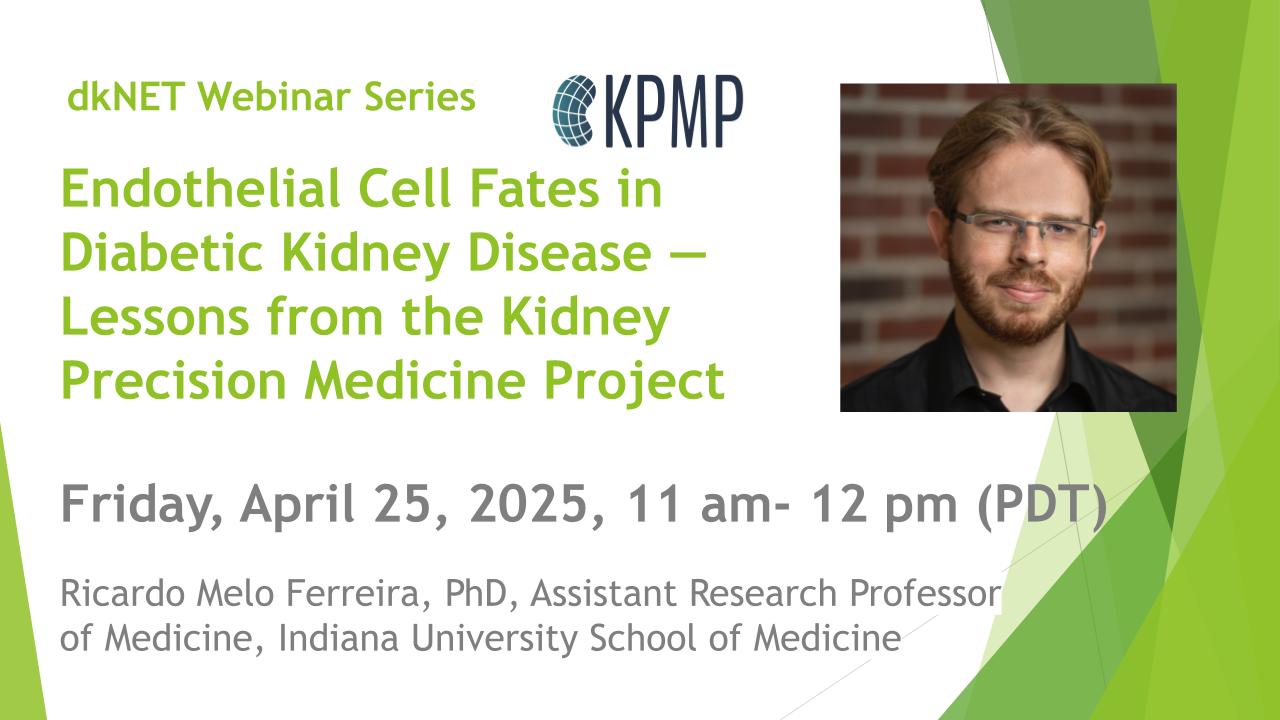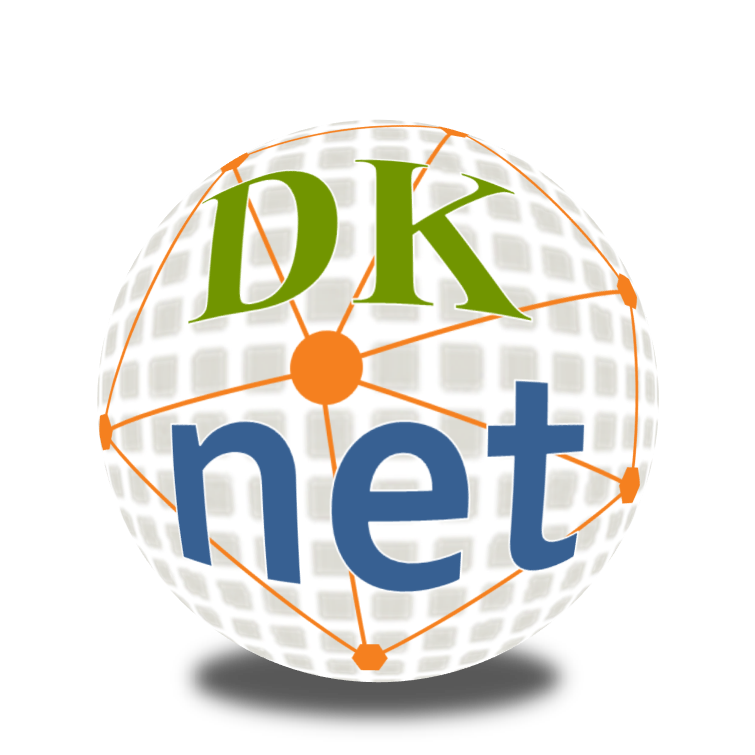Leaving Community
Are you sure you want to leave this community? Leaving the community will revoke any permissions you have been granted in this community.
dkNET community events and announcements in July, 2021
Dear dkNET Community,
dkNET provides updates on activities of interest to the NIDDK-supported community. You could keep up to date on these activities through our Twitter feed @dkNET_info, through our Community Calendar, or through dkNET e-mail list. If you have an event or funding opportunities you'd like to advertise, please contact us info_at_dknet.org.
dkNET News
- dkNET Webinar: Recording and slides of the dkNET webinar “Appyters: Turning Jupyter Notebooks into Data-Driven Web Apps”, presented by Dr. Avi Ma’ayan, are now available!
- dkNET Partners With the(sugar)science to Promote Scientific Research Tools: dkNET is excited to announce our new partnership with the(sugar)science to increase the awareness of tools and services in supporting Type 1 diabetes research. https://dknet.org/about/blog/2266
- New Publication: Congratulations to Dr. Chun-Nan Hsu and co-authors from the dkNET team, RRID team, FAIR Data Informatics Lab at University of California San Diego, and collaborators at National Central University in Taiwan on publishing a new paper "Antibody Watch: Text Mining Antibody Specificity from the Literature" in PLOS Computational Biology!
- The 2021 dkNET Summer of Data Student Program kicked off its bootcamp week on June 21, 2021, teaching young researchers about dkNET resources, FAIR data, and rigor & reproducibility skills to apply in their research careers! Congratulations on these 2021 dkNET Summer of Data Student Program awardees: https://dknet.org/about/summer_program_student_2021
Events in July, 2021
Jul. 05, 2021
Registration Deadline: NIDDK Workshop: Pancreatic Pain: Knowledge Gaps and Research Opportunities in Children and Adults
The purpose of this workshop is to explore recent developments in understanding the origin and mechanisms of pain in pancreatic disease, the relationship of visceral neural pathways and central pain centers, the role of behavioral factors and disorders on the perception of pain, and differences in pain perception and processes in children compared to adults. In addition the role of genetic risk factors for pain, and the mechanisms and role of placebos in pain treatment will be discussed. Methods of pain assessment including quantitative sensory testing will be examined, as well the process of central sensitization of pain. Finally, newer approaches to pain management including cognitive behavioral therapy, nerve stimulation, experimental (non-opioid) drugs, and cannabinoid compounds will be covered.
Register by July 5, 2021.
More Information: https://www.niddk.nih.gov/news/meetings-workshops/2021/pancreatic-pain-knowledge-gaps-research-opportunities-children-adults
Jul. 07, 2021
DRC Virtual Seminar Series: “Hot topics: in vitro modeling of molecular interactions between SARS-CoV2 and diabetes”
In the early months of the Covid19 pandemic, individuals with metabolic syndrome or diabetes appeared to have elevated risk for Covid19-related mortality, but the molecular mechanisms underlying this elevated risk were unknown. Additionally, some reports suggested that infection with SARS-CoV2 enhanced rates of glucose intolerance, prediabetes, and new onset diabetes. Whether diabetes alters the vulnerability of various cell types to SARS-CoV2 infection and if SARS-CoV2 infection alters the metabolic function of the pancreas, liver, adipose, lung, and other important metabolic tissues has been areas of intense investigation over the past year. This panel will discuss current evidence from cellular models about the molecular and cellular interaction between SARS-CoV2 and diabetes, highlighting areas where broad consensus has been reached and areas where more evidence is needed.
Speakers: Carmella Evans-Molina, MD, PhD; Peter Jackson, PhD; Shuibing Chen, PhD
Wednesday, July 7th, 2021 at 11am PST
More Information: https://diabetes-virtual-seminar.org/
Jul. 08, 2021
The(sugar)science State of the Science T1D Discussion: Beta Cell Replacement: What Are the Most Promising Approaches for Beta Cell Replacement Moving Forward?
State of the Science is an interactive conversation with room for granular and lively debate focused on the most pressing issues in type 1 diabetes (T1D) research. Our goal is to foster open science, interaction, and collaboration–all hallmarks of the(sugar)science mission.
Discussions take place May-September 2021
Thursdays, 8-9 am PDT
July 8, 2021 Topic: Beta Cell Replacement: What Are the Most Promising Approaches for Beta Cell Replacement Moving Forward?
Anchors: Doug Melton PhD (HSCI), Ali Naji MD PhD (PENN), Mike Rickles MD (PENN), Felicia Pagliuca PhD (Vertex) Matthias Hebrok PhD, (UCSF)
Panel: Jon Odorico MD (U Wisc), Pete Butler MD (UCLA) Cherie Stabler, PhD (UF), Mark Atkinson, PhD (UF), Ekaterine Bershivili MD PhD (UGeneva)
More Information: https://thesugarscience.org/state-of-the-science/
Jul. 14, 2021
NIDDK Workshop: Technologies to Optimize Kidneys for Transplant
The number of donor kidneys available for people with end-stage renal disease (ESRD) is currently insufficient. This workshop will focus on the scientific and technical barriers to enhanced evaluation, preservation, repair, and optimization of donor kidneys to improve organ utilization. The workshop will bring together experts from a wide range of disciplines to identify challenges and opportunities, stimulate multidisciplinary collaboration, and accelerate research.
This kick-off virtual event will be held to stimulate interest in and prioritize topics for a face-to-face conference that will be scheduled when feasible.
Register by July 13, 2021.
More Information: https://www.niddk.nih.gov/news/meetings-workshops/2021/technologies-optimize-kidneys-transplant
Jul. 20, 2021
Abstract Submission Deadline: GUDMAP Jamboree 2021
The GenitoUrinary Development Molecular Anatomy Project (GUDMAP) was established fifteen years ago to create a detailed molecular map of genitourinary tract development. In recognition of this milestone, this symposium will review GUDMAP accomplishments and discuss the future directions of the GUDMAP Consortium and its data resources.
We invite academic researchers and scientists in the biomedical community to join our celebration (via Zoom). This event features invited talks from external speakers; presentations from GUDMAP investigators showcasing their biomedical research and progress; relevant data, resources, breakout groups or discussions around key topics (e.g., bioinformatics, data quality), and tools available in the GUDMAP Hub for the broader communities at large; posters or lightning talks presentations from young investigators; and more.
The GUDMAP Jamboree is a celebration of 15 years of the GUDMAP consortium.
August 23rd-24th, 2021, 11am-6pm Eastern
Deadline for submitting abstract: July 20, 2021
More Information: https://www.gudmap.org/events/2021-gudmap-jamboree/
Jul. 21, 2021
NIDDK Workshop: Pancreatic Pain: Knowledge Gaps and Research Opportunities in Children and Adults
The purpose of this workshop is to explore recent developments in understanding the origin and mechanisms of pain in pancreatic disease, the relationship of visceral neural pathways and central pain centers, the role of behavioral factors and disorders on the perception of pain, and differences in pain perception and processes in children compared to adults. In addition the role of genetic risk factors for pain, and the mechanisms and role of placebos in pain treatment will be discussed. Methods of pain assessment including quantitative sensory testing will be examined, as well the process of central sensitization of pain. Finally, newer approaches to pain management including cognitive behavioral therapy, nerve stimulation, experimental (non-opioid) drugs, and cannabinoid compounds will be covered.
Register by July 5, 2021.
More Information: https://www.niddk.nih.gov/news/meetings-workshops/2021/pancreatic-pain-knowledge-gaps-research-opportunities-children-adults
Jul. 29, 2021
The(sugar)science State of the Science T1D Discussion: Mitochondrial and Pro-hormone Dysfunction in Beta Cells
State of the Science is an interactive conversation with room for granular and lively debate focused on the most pressing issues in type 1 diabetes (T1D) research. Our goal is to foster open science, interaction, and collaboration–all hallmarks of the(sugar)science mission.
Discussions take place May-September 2021
Thursdays, 8-9 am PDT
July 29, 2021 Topic: Mitochondrial and Pro-hormone Dysfunction in Beta Cells
Anchors:, Amelia Linneman PhD (IU), Douglas Melton PhD (HSCI), Mark Atkinson PhD (UF), Scott Soleimanpour (UMICH)
Panel: Anil Bhushan PhD (UCSF), Bridget Wagner PhD (MIT/Broad)
More Information: https://thesugarscience.org/state-of-the-science/
Funding opportunities information and deadlines in July, 2021
Jul. 07, 2021
NIH Funding Opportunity Application Due Date: Emergency Award: RADx-UP - Social, Ethical, and Behavioral Implications (SEBI) Research on Disparities in COVID-19 Testing among Underserved and Vulnerable Populations (U01 Clinical Trials Optional)
High rates and disparities of COVID-19 infection, morbidity, and mortality continue among underserved and vulnerable populations across the United States. The overarching goal of the Rapid Acceleration of Diagnostics for Underserved Populations (RADx-UP) initiative is to understand and ameliorate factors that have placed a disproportionate burden of the pandemic on underserved and/or vulnerable populations, specifically by implementing programs that expand the scope and reach of COVID-19 testing interventions to reduce these disparities. To address barriers to testing and vaccination, social, ethical, and behavioral research is urgently needed to inform related mitigation efforts. This Phase II RADx-UP Funding Opportunity Announcement (FOA) is designed to expand research to understand and address the social, ethical, and behavioral implications (SEBI) of COVID-19 testing interventions among underserved and vulnerable populations. Desirable studies for Phase II will move beyond descriptive health disparities research to focus on developing interventions and other actionable solutions in collaboration with community partners and stakeholders. The funding for this initiative is provided from the American Rescue Plan Act of 2021.
More Information: https://grants.nih.gov/grants/guide/rfa-files/rfa-od-21-009.html
Jul. 07, 2021
NIH Funding Opportunity Application Due Date: Emergency Awards: Community-engaged COVID-19 Testing Interventions among Underserved and Vulnerable Populations – RADx-UP Phase II (U01 Clinical Trial Optional)
This funding opportunity announcement (FOA) uses an emergency U01 mechanism to support Phase II of the Rapid Acceleration of Diagnostics – Underserved Populations (RADxSM-UP) initiative. These two-year Testing Research Projects will (1) expand the scope and reach of RADxSM-UP testing interventions to reduce COVID-19 disparities among underserved and vulnerable populations and (2) address scientific questions on interventions to increase access and uptake of COVID-19 testing given the increasing availability of SARS-CoV-2 vaccines. The funding for this initiative is provided from the American Rescue Plan Act of 2021.
More Information: https://grants.nih.gov/grants/guide/rfa-files/rfa-od-21-008.html
Jul. 14, 2021
NIH Funding Opportunity Application Due: HEAL Initiative: Non-addictive Analgesic Therapeutics Development [Small Molecules and Biologics] to Treat Pain (UG3/UH3 Clinical Trial Optional)
The purpose of this funding opportunity announcement (FOA) is to support preclinical optimization and development of safe, effective, and non-addictive small molecule and biologic therapeutics to treat pain. The goal of the program is to accelerate the optimization and development of promising small molecule and biologic hits/leads to Phase I clinical trials and readiness for the Early Phase Pain Investigation Clinical Network (EPPIC-Net) https://heal.nih.gov/research/clinical-research/eppic-net or other Phase II clinical studies. Applicants must have a promising biologic or small molecule hit/lead, robust biological rationale for the intended approach, and identified assays for optimization of the agent. The scope of this program includes optimization and early development activities, IND-enabling studies, development of a pharmacodynamic/target engagement biomarker, assembly and filing of an Investigational New Drug (IND) application and Phase I clinical testing. This is a milestone-driven phased cooperative agreement program involving participation of NIH program staff in the development of the project plan and monitoring of research progress.
More Information: https://grants.nih.gov/grants/guide/rfa-files/rfa-ns-21-010.html
Jul. 15, 2021
NIH Funding Opportunity Application Due: Pilot Projects Investigating Understudied G Protein-Coupled Receptors, Ion Channels, and Protein Kinases (R03 Clinical Trial Not Allowed)
The goal of this funding opportunity announcement (FOA) for the Common Fund Program "Illuminating the Druggable Genome" (IDG; https://commonfund.nih.gov/idg/index) is to solicit applications for pilot projects on IDG-eligible understudied proteins (non-olfactory GPCRs, protein kinases, and ion channels) in order to study them beyond what the IDG’s Centers can accomplish and to validate and demonstrate the utility of IDG-generated reagents, data, and approaches.
More Information: https://grants.nih.gov/grants/guide/rfa-files/RFA-RM-21-012.html
Jul. 20, 2021
NIH Common Fund Bridge2AI Program Funding Opportunity Letter of Intent Due: Data Generation Projectsfor the NIH Bridge to Artificial Intelligence (Bridge2AI) Program (OT2)
This Research Opportunity Announcement (ROA) invites proposals to the NIH Bridge to Artificial Intelligence (Bridge2AI) Program, soliciting Data Generation Projects to create flagship datasets based on ethical principles, associated standards and tools, and skills and workforce development to address biomedical and behavioral research grand challenges that require artificial intelligence and machine-learning (AI/ML) analysis. Letter of Intent Deadline: July 20, 2021. Application Deadline: August 20, 2021.
More Information: https://commonfund.nih.gov/sites/default/files/OT2-Data-Generation-Projects-B2AI-051321-508.pdf





